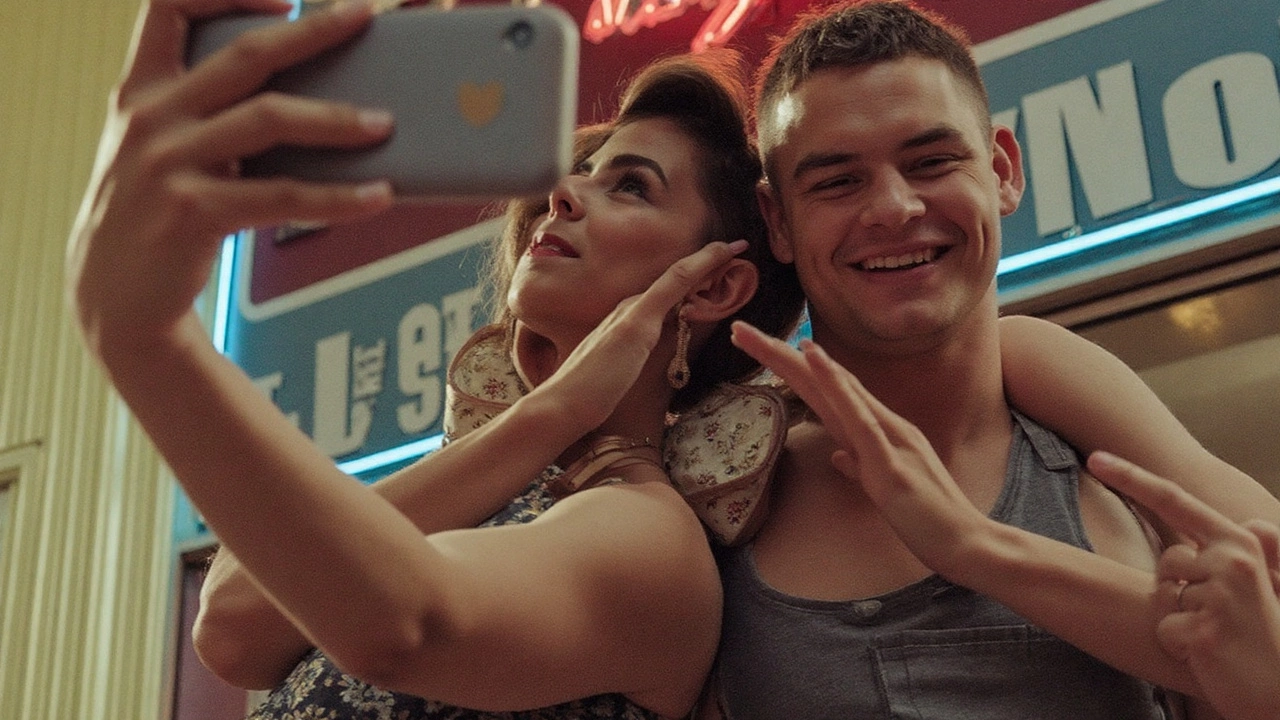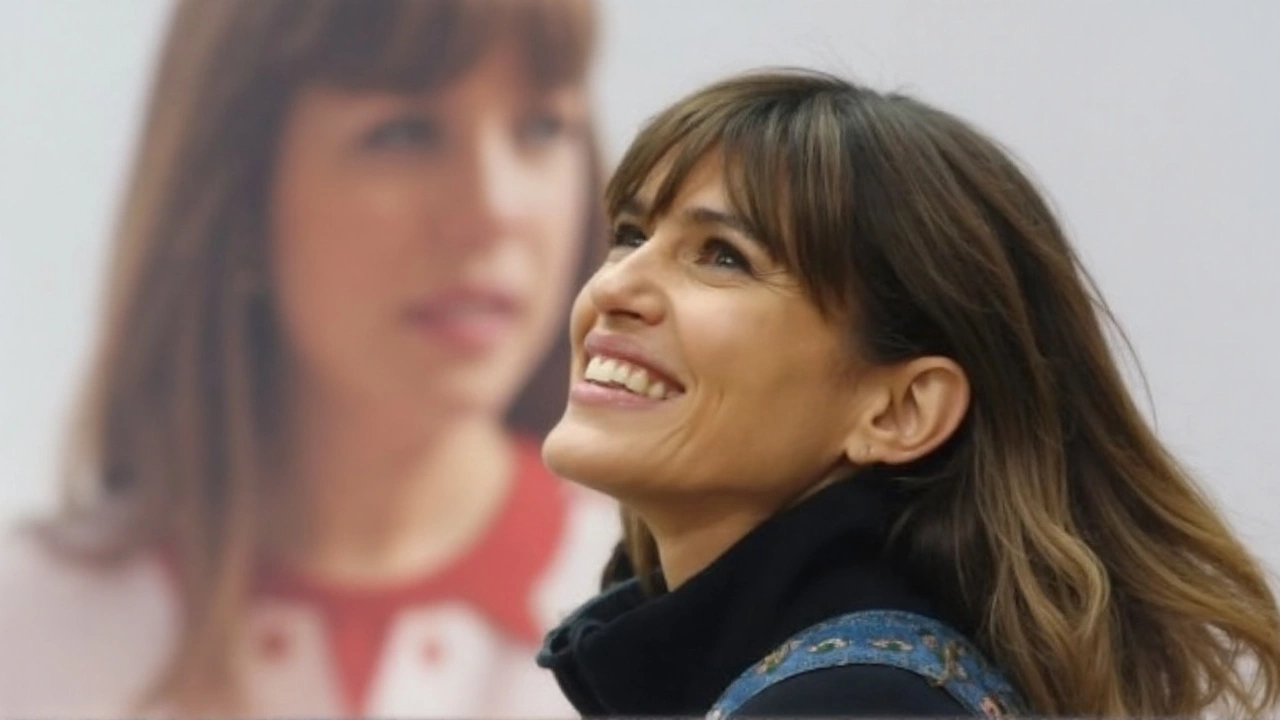A fearless talent gone too soon
Spain is mourning the loss of one of its most magnetic screen presences. Verónica Echegui, a Madrid-born actress whose range stretched from raw social dramas to sharp comedies and tech thrillers, died on Sunday, August 24, 2025, after a private battle with cancer. She was 42. Echegui passed away at Hospital 12 de Octubre in Madrid, with her closest loved ones by her side.
Her illness had been kept strictly confidential. Even many inside the industry had no idea she was unwell, which made the news hit even harder. Friends and co-workers describe a tight circle that honored her wish to keep the fight private while she kept working.
That choice reads differently now when you revisit her promotion for her final completed series, Love You To Death, released earlier this year. In that show, she played Marta, a pregnant woman whose childhood friend is diagnosed with heart cancer—an arc that explores how illness reshapes every relationship around it. She spoke then about the weight borne by partners and friends, not just patients. Those words echo today with unmistakable poignancy.
Born on June 16, 1983, in Madrid, Echegui grew up in a family far from the limelight—her father a lawyer, her mother a civil servant. She chased acting anyway, moving to London to train at the Royal Academy of Dramatic Arts. She waited tables to cover rent and classes, learning craft the old-fashioned way: hard work, hungry curiosity, and no shortcuts. By the time she returned to Spain, she was fluent in Spanish, Italian, and English, and ready to push her luck.
Her breakthrough arrived fast. In 2006, Bigas Luna cast her in Yo soy la Juani, a portrait of a young woman clawing her way out of a dead-end life. The performance was a jolt—energetic, open, and precise—and earned her a Goya nomination for Best New Actress. It also mapped out what she could do: make a character feel like a person you know.
International attention followed. In 2009, European Film Promotion named her one of its Shooting Stars, a Berlinale spotlight that puts emerging talent in front of casting directors and filmmakers. It was a signal to watch her closely. She did not coast on it.
Echegui chose parts that didn’t coddle the audience. In Icíar Bollaín’s Katmandú, un espejo en el cielo (2011), she stepped into a drama set between Spain and Nepal, showing a quiet resilience that became one of her calling cards. In the 2016 romantic comedy No culpes al karma de lo que te pasa por gilipollas, she flipped the tone, playing with timing and irony without losing warmth.
Crime and mystery suited her, too. In La niebla y la doncella (2017), she leaned into the tension of a procedural, while on television she built a steady presence, including the gritty family-crime saga Apaches. She never repeated herself, and she rarely took the obvious route.
Streaming gave her a wider canvas. In 2022, she anchored Intimacy (Intimidad), a drama about privacy, tech exposure, and consent, where she played a factory worker caught in a painful scandal. She inhabited the character’s fear and stubborn dignity without sensationalizing it. A year later, she appeared in The Patients of Dr. García (2023), portraying a wealthy Falangist woman inside a historical conspiracy that spans postwar Spain. Again, she didn’t play types; she played contradictions.
She stayed busy across genres. In 2024, she turned up in the coming-of-age comedy Yo no soy esa, and in the same year starred as a judge weighing algorithmic decisions in Artificial Justice, a thriller about AI in courtrooms. Those roles showed her interest in moral gray zones, whether in a small-town family or a system that wants to hand over choices to code.
Then came Love You To Death in 2025, filmed back in August 2023. It would be the last project she finished. The character Marta gave her space to play empathy and panic, care and exhaustion—the full human mess of standing by someone who is ill. It made for tough, tender TV, and a haunting final performance.
Echegui did more than act. She stepped behind the camera and won big on her first swing. In 2021, she made her directorial debut with the short Tótem loba and took home the Goya Award for Best Fictional Short Film. It was a bold calling card: formally tight, emotionally sharp. She talked about wanting to make independent features and named collaborators she admired—Clara Roquet, Elena Martín, Rodrigo Sorogoyen—signaling a future as a filmmaker as well as a star.
Her personal life remained anchored in the same world where she worked. She met actor-director Álex García in 2010 while filming Seis Puntos Sobre Emma in the Canary Islands. They built a long relationship away from the tabloids and, according to people close to them, he stayed by her side through her final months.
After her death was announced, colleagues and friends began to gather at the La Paz funeral home in Alcobendas. Among those paying respects were Sara Sálamo, Silvia Alonso, Susana Abaitua, Vicky Luengo, Dafne Fernández, Elisa Matilla, and Paco León. The messages were simple and direct: gratitude for her craft, sorrow at her absence, warmth for her family.
She also leaves work the audience has not seen yet. A series titled Ciudad de sombras is in the pipeline for a posthumous release. Details are under wraps, but the title alone suggests the kind of moral and emotional terrain she liked to cross.
What made Echegui stand out? She carried intensity without showing strain. She could shift from a brash, motorbike-riding Juani to a reserved judge confronting AI bias, and both felt truthful. Casting directors trusted her to hold a story. Directors trusted her to find the pulse of a scene. Fellow actors often described her as generous on set.
Her path wasn’t a straight climb. She toggled between mainstream and auteur projects. She worked in Spanish and English. She took on parts that risked misunderstanding, especially in stories about power, privacy, and identity. You could see the homework in the details—how a character sits in a chair, pauses before a word, toughens up and then breaks.
In Spain’s film community, her absence lands at a moment of change. Streamers are reshaping budgets and timelines. Younger filmmakers—many of them women—are pushing past old formulas. Echegui was part of that shift, not as a slogan but through choices: smaller films with bite, series with social weight, short-form work where she called the shots.
She had always been good company for audiences who like actors who disappear into roles. Her English-language training at RADA gave her technical precision; her Madrid roots gave her spark; the years in between gave her patience. It’s not a combination you can fake.
Colleagues say she avoided empty noise. She didn’t chase headlines. She let the work do the talking. Even keeping her illness private fits that approach; she protected the part of herself that didn’t belong to the camera.
For fans who met her through Intimacy, the performance might be the one they can’t shake—its portrayal of humiliation, resilience, and the slow, grinding path back to control. For others, it will always be Juani: young, urgent, furious at limits. For those who discovered her as a director, Tótem loba showed a new gear, a promise of what was coming next.

Career highlights and milestones
Across two decades, Echegui built a body of work that felt modern and restless. These moments capture the arc:
- 2006: Breakthrough in Bigas Luna’s Yo soy la Juani; Goya nomination for Best New Actress.
- 2009: Selected as a European Film Promotion Shooting Star at the Berlinale.
- 2011: Leads Katmandú, un espejo en el cielo, expanding her range in socially rooted drama.
- 2016: Switches gears with the romantic comedy No culpes al karma de lo que te pasa por gilipollas.
- 2017–2018: Turns to crime and suspense in La niebla y la doncella and the TV series Apaches.
- 2021: Directorial debut Tótem loba wins the Goya for Best Fictional Short Film.
- 2022: Fronts the Netflix drama Intimacy as a factory worker facing a personal crisis.
- 2023: Appears in The Patients of Dr. García, navigating politics and identity in postwar Spain.
- 2024: Plays a judge in Artificial Justice, a thriller probing AI and the courts; also features in the coming-of-age comedy Yo no soy esa.
- 2025: Stars in Love You To Death; performance becomes her final completed screen role.
Her last months, by all accounts, were spent working when she could, resting when she had to, and keeping the circle tight. Those who saw her in recent years describe steadiness, not spectacle. The privacy was not a wall; it was a choice that let her keep doing the thing she loved with whatever time she had.
As tributes continue, the sentiment repeats: a talent stopped mid-sentence. There are unfinished plans—features she hoped to direct, collaborations she wanted to try, and roles that would have tested her in new ways. What remains is the work already on screens and the projects still to come, including Ciudad de sombras.
When you look back at her filmography, the through-line is simple. She respected the audience. She didn’t pander. She didn’t over-explain. She trusted that people could sit with uncomfortable truths. That’s a rare trait in any era, and it’s what made her so compelling to watch.
In the coming weeks, her family and team are expected to share details about memorial plans and the posthumous release. For now, colleagues are telling stories—of sets where she lifted the mood, scenes where she found a new angle, rehearsals that turned into breakthroughs. Those stories are small, but they’re the kind that stick, just like her work.
Her name will keep popping up in credits as unreleased projects roll out, and each one will feel like a visit. For a generation of Spanish actors and filmmakers, she will remain a reference point: proof that you can be brave, versatile, and kind at the same time.
